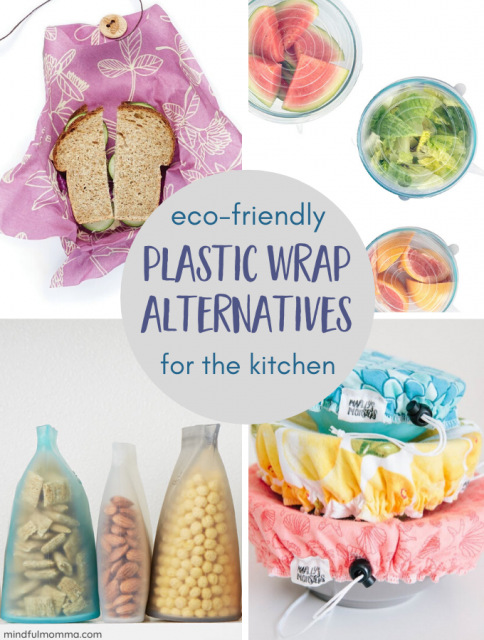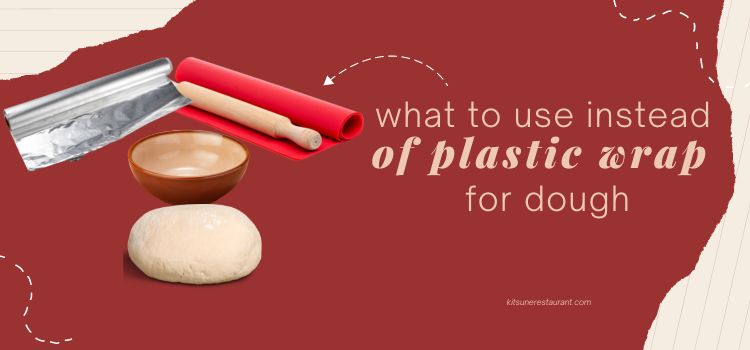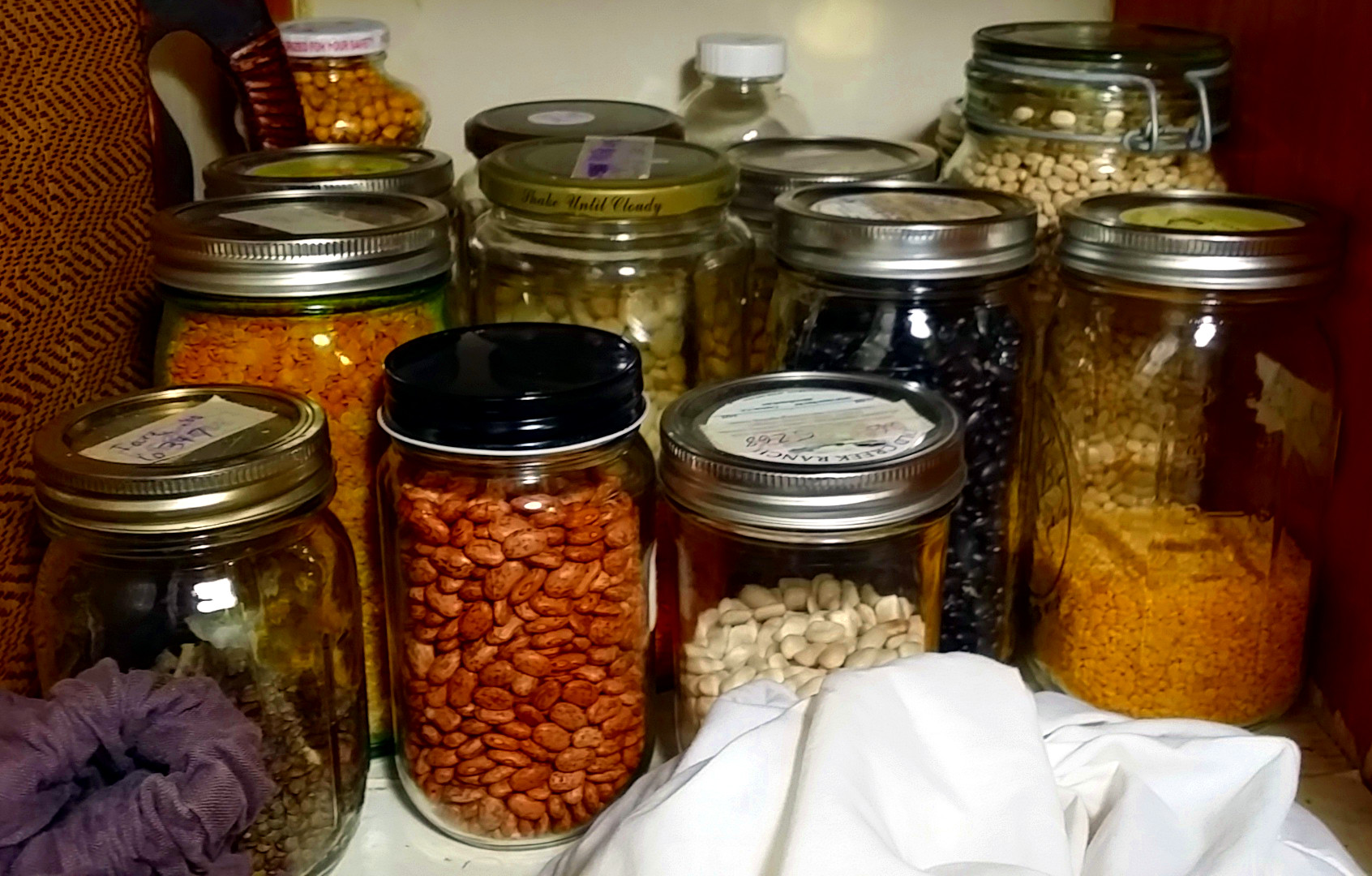
Sustainable Plastic Wrap Alternatives for Specific Uses
Plastic wrap can be convenient for keeping food fresh, freezing items, and packing leftovers, but it’s not the most environmentally friendly option. Fortunately, various sustainable alternatives available can be tailored to specific uses. Here’s a look at a few of the best plastic wrap alternatives for particular uses.
Plastic Wrap Alternative for dough
Plastic wrap alternative has become a go-to solution for covering dough while it rises to keep it from drying. If you’re looking for a sustainable alternative to plastic wrap for dough, beeswax food wraps are a great option. These wraps are made from beeswax, jojoba oil, and cotton fabric. Many people are looking for an alternative that is both eco-friendly and economical.
A damp towel is one of the most popular plastic wrap substitutes for covering dough. A wet towel, such as a kitchen towel, can be placed over the dough bowl to keep it from drying. The key is ensuring the towel stays damp throughout the rising process.
Silicone bags are also great eco-friendly plastic wrap alternatives. Silicone bag covers are typically designed to fit snugly over the dough bowl, creating a seal that keeps out moisture and prevents drying.
Beeswax food wraps are another great option for covering dough. Wax paper is a natural alternative and is much more breathable. This helps to keep the dough from becoming too hot while rising, allowing it to rise slowly and evenly. Wax paper is also easy to use and can be used repeatedly.

Plastic Wrap Alternative for freezing
As more people become aware of the negative impacts of plastic on the environment, many are looking for conventional plastic wrap alternatives for freezing food. Reusable silicone lids are a great alternative to plastic wrap. These lids are stretchable and can fit almost any container or bowl. These wraps are made from natural materials like cotton, beeswax, and jojoba oil. They are flexible and durable, and they can be used multiple times. Wax wraps come in various patterns and colors, so you can find a style that suits your needs.
Silicone lids are flexible covers made of silicone rubber that can be used to seal containers, bowls, or pots. They are designed to create an airtight seal that helps to keep food fresh, and they can be used as a replacement.
Plastic Wrap Alternative for packing leftovers
There’s good news if you’re looking for plastic wrap substitute packing leftovers. Many eco-friendly, reusable food storage options are available to help reduce plastic waste. Reusable beeswax wraps are an excellent option for covering leftovers. They’re made from organic cotton fabric and 100% natural beeswax, jojoba oil, and tree resin.
Glass containers with tight-fitting lids are another reusable option for storing leftovers. They come in various sizes to keep whatever you need. The glass is easy to clean and won’t leach chemicals into your food as some plastics can.
Silicone bag lids are another great way to store leftovers. These are breathable and have been used for generations to cover dishes and store food. They don’t contain any toxins. They’re dishwasher-safe and can be reused for years. There’s always the option to go old-school with a cloth napkin or tea towel.
Is there an alternative substitute for the microwave?
Yes, several Plastic cling wrap substitutes for microwaves can be used in place of traditional ones. These substitutes are generally made from parchment paper, wax paper, aluminum foil, and parchment-lined plates. Parchment paper is an excellent choice for use in the microwave, as it is heat-resistant, non-stick, and can resist temperatures up to 420°F. Furthermore, parchment paper is approved for use in the microwave and can cover food or line baking dishes.
Plastic cling wrap, also known as plastic wrap or food wrap, is a thin plastic film that is used to wrap food items such as sandwiches, vegetables, and leftovers.
Wax paper is also approved for use in the microwave but has a lower melting temperature, so it should not be used to cover food cooked at a high temperature. Aluminum foil is another great alternative for use in the microwave, as it is heat-resistant and can be used to cover food or line baking dishes.
Is compostable plastic wrap alternatives an option?
Yes, compostable is an option for those looking for an environmentally friendly alternative to traditional plastic wrap. Compostable plastic wrap is made from plant-based materials such as cornstarch, potato starch, and cellulose that can break down in a composting environment.
Compostables can also be used in various ways, such as wrapping food, covering bowls, and even wrapping objects like books. Unlike traditional plastic wrap, compostable plastic wrap is not made from petroleum, which makes it more sustainable.
What are the best plastic wrap alternatives?
The best plastic wrap alternative is reusable silicone food wraps. Silicone food wraps are an environmentally friendly, non-toxic, and reusable alternative. They are made from 100% food-grade silicone, a durable, flexible, and safe material for food use. They are also easy to clean and can be reused for up to a year.
Set up a real food zero-waste kitchen staples
Setting up a real food zero waste kitchen is a great place to start if you’ve been considering ways to reduce your environmental impact. Your kitchen is likely one of the most used rooms in your home and is filled with potential for waste reduction. You can dramatically reduce your impact on the planet by taking a few simple steps while enjoying delicious meals.
The first step to setting up a real food zero waste kitchen is to stock up on the basics. Reusable items such as glass jars, beeswax wraps, and cloth napkins are essential for reducing waste. Instead of buying single-use items such as plastic wrap and paper towels, opt for reusable items that can be washed and used repeatedly.
Next, it’s time to focus on the food. Eating real food is an essential part of a zero-waste kitchen. This means choosing food that is minimally processed and packaged. Choose whole grains, fresh fruits and vegetables, and beans, and avoid heavily processed items such as boxed cereals and frozen dinners.
Composting is a great way to turn food scraps into nutrient-rich soil and can be quickly done at home. You can also look into donating uneaten food items to local food banks or freezing food nearing its expiration date for later use.

Eco-Friendly Plastic Wrap
When making sustainable choices in our daily lives, we must look for alternatives. Plastic wrap is a significant source of single-use plastic waste, which harms the environment and contributes to climate change. There are a lot of eco-friendly alternatives to plastic wrap that are reusable and easy to use. Here is a list of the top four eco-friendly options for plastic wrap:
Check out this big list of eco-friendly alternatives to plastic wrap.
Beeswax Wraps:
Beeswax wraps are food wraps made from a combination of beeswax, tree resin, and organic cotton. They are a reusable alternative to plastic wraps for storing and preserving food. The wax acts as a barrier, keeping air and moisture out, while the resin helps the wrap adhere to itself or containers. They are environmentally friendly and can be used repeatedly.
Beeswax wraps are great sustainable alternatives to plastic wraps. They are made of natural ingredients, such as beeswax, jojoba oil, and tree resin. Beeswax Wraps is ideal for sandwiches, cheese, fruit, and vegetable wrapping.
Reusable Bowl Covers:
Reusable bowl covers are made of various materials, such as cotton, bamboo, and hemp, and come in various sizes and shapes. They are designed to fit snugly over bowls or pots, providing a secure seal and allowing you to remove the lid easily. Reusable bowl covers are a great way to reduce your environmental footprint, as they can be reused multiple times instead of discarded after a single use.
Reusable bowl covers are a great way to avoid using harmful plastic wraps and baggies containing various toxins and chemicals. Reusable bowl covers are easy to use and care for. They can simply be wiped clean with warm, soapy water and then air-dried or washed in the washing machine on a gentle cycle.
Silicone Food Bags
Silicone food bags are an increasingly popular sustainable solution for storing food. Made of a flexible, durable material, they are designed to be reused multiple times, reducing the need for wasteful disposable plastic bags.
Silicone food bags come in various sizes and shapes, from small snack bags to larger meal-sized bags. They are easy to use and care for, as they can simply be wiped clean with warm soapy water or washed in the dishwasher or washing machine on a gentle cycle. They are also freezer-safe, allowing you to store food for longer.
Silicone Bowl Covers & Lids
Silicone bowl covers & lids are an incredibly versatile kitchen essential, ideal for keeping food fresh and reducing waste. They are designed to fit snugly over bowls or pots, providing a secure seal and allowing you to remove the lid easily. They are made of a flexible, durable material and come in various sizes and shapes, making them suitable for a wide range of bowls and pots.
Silicone bowl covers & lids are an effective way to keep food fresher for longer, as their airtight seal helps to lock in moisture and flavor. They are an excellent way to avoid using harmful plastic wraps and baggies containing various toxins and chemicals. Silicone bowl covers & lids are easy to use and care for, as they can simply be wiped clean with warm, soapy water and then air-dried or washed in the washing machine on a gentle cycle.
Reusable Sandwich Wraps
Say goodbye to single-use plastic sandwich bags and hello reusable sandwich wraps. Reusable sandwich wraps are a great option for those looking for a more eco-friendly alternative to traditional plastic sandwich bags. These wraps are typically made from fabric or waxed cloth and can be used to store sandwiches, snacks, and other food items. In addition to being reusable, many sandwich wraps are machine washable, making them easy to clean.
Reusable Food Storage Containers
Reusable food storage containers are becoming increasingly popular for storing food items without relying on single-use plastic. Reusable food storage containers are not only eco-friendly, but they’re also often more durable and easier to clean than traditional single-use plastic containers.
Reusable Cloth Bags
Reusable cloth bags are an excellent way to reduce the need for single-use plastic bags when shopping. These bags are typically made from natural materials such as cotton or hemp and are available in various sizes, shapes, and colors. They’re great for grocery shopping, carrying lunch, and more. Reusable cloth bags are an easy and affordable way to reduce reliance on single-use plastic bags.
Dishtowels & Dinner Plates
Dishtowels and dinner plates are another way to reduce plastic waste. Instead of relying on disposable paper plates or plastic cutlery, opting for reusable dishware is a great way to reduce your environmental footprint.
Individuals can make a big difference in reducing plastic waste by making small changes, such as switching to reusable wraps, bags, containers, and dishware. Reusable products are not only more eco-friendly, but they’re also often more durable and easier to clean than traditional single-use plastic items. So, the next time you require food storage, transportation, or mealtime solutions, consider more sustainable options.
Why & How to Buy Natural, Non-Toxic Products
In an age when the average person is exposed to hundreds of toxins and chemicals every day, it’s no wonder why many are turning to natural, non-toxic products. From cleaning supplies to beauty products, there are many ways to reduce exposure to dangerous chemicals and improve your overall health.
Here’s why and how to buy natural, non-toxic products:
Why Buy Natural, Non-Toxic Products?
The primary reason for purchasing natural, non-toxic products is to reduce exposure to potentially harmful chemicals. Many household and beauty products contain ingredients that can be absorbed through the skin or inhaled, leading to health problems like allergies, asthma, and cancer.
How to Buy Natural, Non-Toxic Products
Buying natural, non-toxic products is easier than ever, thanks to the rise of natural and organic beauty and household products.
Here’s how to get started:
1. Read labels. When it comes to natural and organic products, labels are key. Look for certified organic products free of known toxins like phthalates, parabens, and formaldehyde.
2. Shop online. Many online stores specialize in natural and organic products, giving you more options. Shopping online for natural and organic products is a great way to find exactly what you’re looking for.
3. Consider DIY options. If you’re looking for a cost-effective way to reduce chemical exposure, consider making your own natural and organic products. From body scrubs to all-purpose cleaners, plenty of recipes are available online for easy DIY products.
Leave a Reply